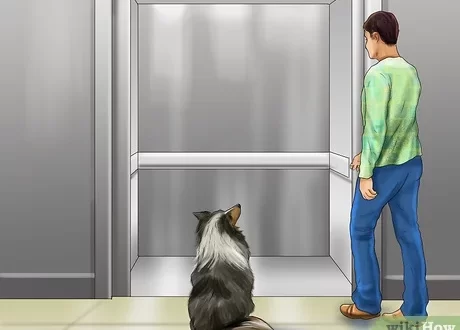
Balanced nutrition for puppies and dogs of all ages
When you got a four-legged friend, you researched the nutritional requirements of dogs and talked to your veterinarian to decide what you would feed him. In addition, you know that under no circumstances should you give your dog food from your table. But did you know that a pet’s needs change with age? The age category of food will change with your dog, but it is important to understand what your pet needs from the first months of life to old age.
Contents
What are the nutritional requirements for dogs?
Nutrients are substances that the body gets from food and uses as a source of energy. Dogs love to play with their owners, and for that they need energy! Nutrients are essential for a dog to grow properly and be healthy. A car needs gas (and maintenance) to run, but a dog needs food to move.
A dog’s diet should contain different groups of nutrients: proteins, fats, carbohydrates, vitamins, minerals and water. Choosing a balanced diet that includes these nutrients will help your puppy grow and your older dog stay healthy.
newborn puppies
For the first few weeks after birth, puppies are fed only mother’s milk. However, if the mother is sick or the puppies are orphaned, they need a milk replacer. Your veterinarian will be able to advise you on how to choose such a substitute, as well as how to feed newborn puppies that do not receive milk from their mother.
Later, they will begin to switch from mother’s milk or formula to self-feeding. To start this process, try weaning the puppy from its mother for a short period of time. While the mother is not around, offer him a saucer of puppy food. Gradually increase the time during which the puppy is offered such food, encourage, but do not force him to eat.
young dogs
Once a puppy is weaned from its mother, it will get all of its nutrients from dog food, so be sure to choose food that is not only delicious, but also healthy. Young dogs spend a lot of energy, so their diet should contain enough protein. This way they will stay energetic and feel great. In addition, at first they need three to four small meals a day, then they gradually move to two meals with larger portions. Check with your veterinarian about your puppy’s diet to make sure his daily diet is adequate.
It is possible that at first grown puppies will play with their food. Starting with the game, over time they will begin to enjoy the taste and love the smells and sensations that new food gives. You can add a little water to dry food at first to make it more pleasant for the puppy to chew, or offer canned food.
adult dogs
Most dogs become adults during their first year of life, so it is important to transition them to adult dog food by this time. The diet of adult animals depends on their size and activity. If you have any questions about the amount of food your pet needs, check with your veterinarian. Don’t overfeed your four-legged friend. During this period of life, dogs need supportive nutrition. Keep in mind that an extremely active dog and a less active domestic dog require different amounts of food and nutrients. In addition, a large dog needs more food than a small breed dog. When choosing the type of food for your dog, keep in mind that other factors, such as air temperature, also affect the diet of his dog. During extreme heat or frost, the pet consumes more energy that needs to be replenished. In addition, if he begins to get regular exercise or, conversely, becomes less active, you will need to change the amount or type of food your dog has.
Because adult dogs do not require the same amount of nutrients to grow as puppies do, the best food for them is a food specially formulated for the needs of an adult dog. For example, Hill’s Science Plan Adult is formulated specifically for the active adult dog. If you continue to give an adult dog puppy food, it can lead to weight problems, because such food is rich in nutrients necessary for growth.

Dogs over seven years old
Often, older dogs—usually over the age of seven—are not given the attention they deserve. At this time, the dog is still full of life, playing and running with you without problems, but you can already notice that he moves a little slower and does not play as long as before. Dogs are no different than humans in this regard. They, like us, become less active with age, so it is very important to give them food that meets the needs of adulthood. As your pet slows down, she needs more nutrients to keep her internal organs, bones, and muscles healthy. A food designed to meet the needs of this life period will give the dog the opportunity to feel young and active. One should not think that a slightly slowed down rhythm of life is the beginning of the end; the dog is still full of life and love, it just needs a diet that will help him feel fit.
Even if your dog’s pace of life is still high, he still needs vital nutrients to keep him young and active. Check out Science Plan Senior Vitality Dog Food, specially formulated to combat the signs of aging. Choosing the right nutrition will help increase the activity, sociability and mobility of the animal in its mature years.
Science Plan Senior Vitality has been formulated specifically for mature and senior dogs over the age of seven. If you don’t know what age category to put your pet in, check out this helpful information about pet aging. Here you can compare your dog’s age to that of a human and learn how to spot the signs of aging your dog will show as he ages. Talk to your veterinarian to make sure Science Plan Senior Vitality is a good choice for your dog.
older dogs
Around the age of eleven, the dog reaches old age, but this age varies among dogs of different sizes and breeds. As a rule, due to the greater load on the body, large dogs move into the category of seniors earlier than small ones. As a dog gets older, its body and nutritional requirements change again. These are metabolic and immunological changes, due to which her diet also needs to be changed. All dogs are different, so during your annual checkup, be sure to ask your veterinarian if your four-legged friend qualifies as a senior dog.
Food for older dogs is formulated to support the body’s functioning. Metabolism is already significantly slowed down, so older dogs do not require calorie-rich foods. They also often have joint and mobility issues, which is why Hill’s makes foods specially formulated to support freedom of movement, promote strong bones and healthy joints. If your dog is aging and you have concerns about his health, be sure to consult with your veterinarian about choosing the best food for him that will meet all his nutritional needs.
Solving the problem of special needs
Remember that the nutritional needs of dogs can change at any time regardless of age, especially if something happens that affects them. For example, there will be a deficiency of vitamins and minerals or the dog will get sick. If your veterinarian recommends changing your pet’s diet, be sure to follow their recommendations and always remember to gradually transition your dog to a different food to avoid digestive problems.
Choosing food for your dog at every stage of his life
Do not forget that in addition to food, the dog always needs fresh and clean water.
Another little note about your dog’s diet. Loving owners want to pamper their pets with treats and treats. Do not forget that during training, you need to reward the puppy only with healthy dog treats. Treats should not make up more than fifty percent of your dog’s diet.
Deciding what to feed your dog is not easy. If you find it difficult to choose from the many food options available, first select those that are suitable for your pet’s age. Then talk to your veterinarian about your dog’s nutritional needs. A specialist will help you make a choice taking into account the breed of your pet, its size and the energy it expends. Check out Hill’s Science Plan branded food for all ages. It will accompany your dog throughout his life.





